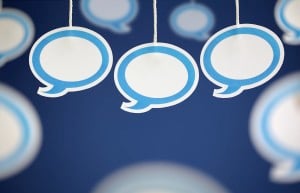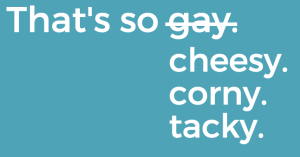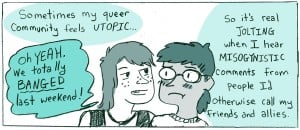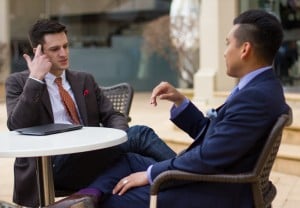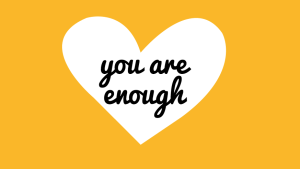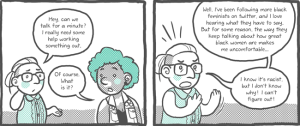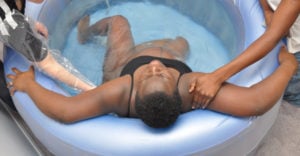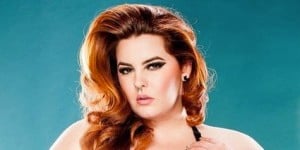(Caption: Kat Blaque. Your questions, my brutal honesty.)
Kat Blaque: True Tea: Your questions, my brutal honesty. Hey guys, it’s Kat, and it’s time for your weekly dose of True Tea. I’m drinking chai once again! Let me know what’s in your mug in the comment box below. If you’re not already subscribed to this channel, please subscribe so you can get True Tea every Sunday in your subscription box. Anywho, let’s jump right into today’s question.
Participant: Hey Kat!. I am a non-binary and gender fluid woman who recently did a history project on how queer women were regarded as evil, masculine, predatory, and preying on young and innocent girls. These stereotypes are still being portrayed in the media, and I hate how queer women are depicted. I find that my self-esteem is very low because of how the media portrays us, and I’ve often considered self-harm or suicide because of it. I’ve also started to have bad feelings about other queer women, which I know is bad. How do marginalized groups overcome internalized oppression?
Kat Blaque: So first of all, I wanted to say, don’t hurt yourself. Don’t end your life prematurely, because as cliché as it sounds, things do get better. I completely understand what it feels like to be in despair because of what society has presented to you is your possibility.
Personally, as a trans woman, I’ve dealt with that a lot, seeing only only my representation on Jerry Springer, and stories of us being killed, stories of us being oppressed, and it’s really easy to buy into the narrative of despair; but I think that we can always hold out hope that things will get better, and that things are ultimately going to become easier for you to deal with. And I just wanted to say that because I feel like I’ve been in the position where you are, obviously not in the same way, but I’ve been in a similar position as you are. And I just want to tell you that there is so much more to life than what people have told you you are.
I think when it comes to deprogramming internalized oppression, I think one of the best things you can do is educate yourself. Understand that we live in a society where narratives are presented with a certain limitation on them through a certain filter. Because we live in a society where, of course, people are going to be invested in upholding their biases.
They’re going to be invested in upholding their hate, their narratives, what they think about lesbian women, what they think about queer women, what they think about, you know, trans people, what they think about gay people. They’re invested in upholding those narratives, so I think it’s really important for you to understand that just because someone says something is about you, does not mean that it’s true.
One of my first classes that I took about feminism was a class called Lady Murderesses that talked a lot about vamps and different figures in fiction that were lesbian women, and how they were always kind of prefixed as dangerous, and predatory, things like that. And I think that a good way to kind of be able to understand those things is to understand what life was like for lesbian women back when these stories were written.
For me, knowledge is power, and we live in a society right now where there is so much accessible knowledge for us out there. You know – we have so many – we have so much access, because of the internet, to writings of lesbian women from back then. We have so much access to writings of queer people today. And I think that that is how you can kind of counteract what you’re dealing with, is by seeking out that information and knowing what it actually was versus how, you know, a straight, cis person has told you it was.
I know for me, one of the big ways that’s helped me – one of the big things that’s helped me deprogram my own anti-Blackness – was actually understanding what the African-American plight in America was. Once I started to really know, and understand, and research, and get it, that was when it started to become easier, for me to understand that I was socialized to look at myself a certain way, because that was something that helped the structure of racism thrive, right? So, I had to be taught a certain way about myself in order for a white person to be able to really sit up and say, “Well, I’m better than you.” Do you know what I mean?
So, for me, I think that that’s really the key, is understanding and getting your own education and taking things into your own hands, and stop relying on other people to tell you about you.
So, that’s my True Tea. I don’t know if it was the best brew, but hopefully it was helpful. So, yeah. If you guys want my True Tea, send me a short e-mail or an unlisted video at [email protected]. If you like this mug, you can get this mug, and so much more, in my Society6 store. The link is always in the description box below, or of course you can click here!
Anyway, on that note, as per usual, always remember and never forget that you are beautiful, and you are loved.
Bye!





